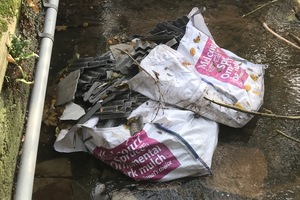The year 2020 has been a difficult one for us all. As COVID-19 has affected almost every aspect of our lives, it has at times been hard to foresee an end. But last week, we reached an important milestone in our fight against the disease. On Wednesday, my Agency the MHRA announced the authorisation of the Pfizer/BioNTech COVID-19 vaccine for supply here, making the UK the first country in the Western hemisphere to issue an approval.
Before some 30 years at the MHRA and its predecessor, working on keeping medicines safe for the public, I was a general practitioner for 5 years. Patient safety has always been at the heart of my work. It has been no different for this vaccine, nor will it be for the others to come.
People rightly ask me how we achieved this outcome before others.
While the first batch of data from Pfizer was not submitted to the MHRA until early October, we began preparing our safety surveillance systems months before.
In early June, we set up an independent Expert Working Group to take some of the important safety work forward. In August, a second Working Group was formed with different expertise – this time to advise the MHRA on the benefits and risks of the COVID-19 vaccines in development. Formed from 48 experts from outside of the MHRA, these groups include virologists, epidemiologists, immunologists and toxicologists. It also includes lay membership.
In September, we started preparing our laboratories for ‘independent batch testing’ of this vaccine. Although the vaccine manufacturers carry out their own comprehensive testing regimes on the batches of vaccine they produce, it’s of vital importance that tests focusing on safety and quality are conducted independently, too.
In the UK, this independent testing is performed by the National Institute for Biological Standards and Control (NIBSC), which is part of the MHRA. Before any batch can reach the public, the NIBSC will conduct a rigorous assessment to check that it is consistent with characteristics derived from results for batches previously shown to be safe and effective in clinical trials, or routine clinical use. This work began in November.
COVID-19 vaccines, including this one, are being developed in a coordinated way that allows some stages of the assessment process to happen in parallel, allowing us to condense the time needed. The expected high standards of safety, quality and effectiveness are not compromised in any way. This ‘rolling review’ – a regulatory tool that allows us to review the data as they become available from ongoing studies, rather than waiting for it to be submitted as a full package– has been key.
There have been several submissions of data sent us to us by Pfizer/BioNTech since October. This means that we had already made good progress on our review by the time the final clinical submission was sent to us on the 23 November. This is why I like to think of it as climbing a mountain – months of careful planning and preparation; ready at the base camp when the interim data arrive; and when the final package arrives, we are ready to scale the peak.
As the data came in, our scientific and clinical experts robustly and thoroughly reviewed it with great scientific rigour. We pored over pages of information and data, looking at all aspects – from the laboratory studies to the clinical trials, and more. We looked at how the vaccine protects people from COVID-19, the level of protection it provides and how long for. We analysed the data on safety, its stability and how it needs to be stored. The list goes on. Our assessors have worked around the clock, reviewing hundreds of pages of data.
On top of this, we also have a range of experts inspecting the sites used across the whole lifecycle of the vaccine, from its initial development in a lab to its manufacture and distribution, once approved. Our inspectors work to legislation that incorporates internationally recognised quality standards.
Of course, no stone should be left unturned. And that’s why it’s important that we don’t just rely on our own analysis. So, once we have reviewed the data, we seek advice from the Government’s independent advisory body, the Commission on Human Medicines. They critically assess the data too before advising the UK government on the safety, quality and effectiveness of any vaccine.
On 1 December we received a letter from the Department of Health and Social Care asking us to authorise the Pfizer/BioNTech vaccine under Regulation 174, an EU provision introduced in national law that allows for the authorisation of a medicine in response to a public health need.
This means that, instead of having to go through the centralised licensing route of the European Medicines Agency (as most vaccines do until the end of the transition period), we were able to authorise the supply of the vaccine based on public health need, provided the batches meet specific conditions laid out by us. For those concerned about this, I can assure you without reservation that the standards we have worked to are equivalent to those around the world – no corners have been cut.
But our work doesn’t end there. As with any medicine, COVID-19 vaccines require continuous safety monitoring to ensure the benefits in protecting people outweigh any side effects or potential risks. The MHRA has responsibility in law to continuously evaluate all medicinal products on the UK market and this vaccine is no exception.
While this battle is in no way over, I hope that this decision, underpinned by months of scientific rigour and analysis, will bring hope to those who have seen some of their darker days during this pandemic. I also owe a huge debt of thanks to all those whose expertise, dedication and inspiring work have brought us this far on our journey.
The original article can be found on The Times’ website.

